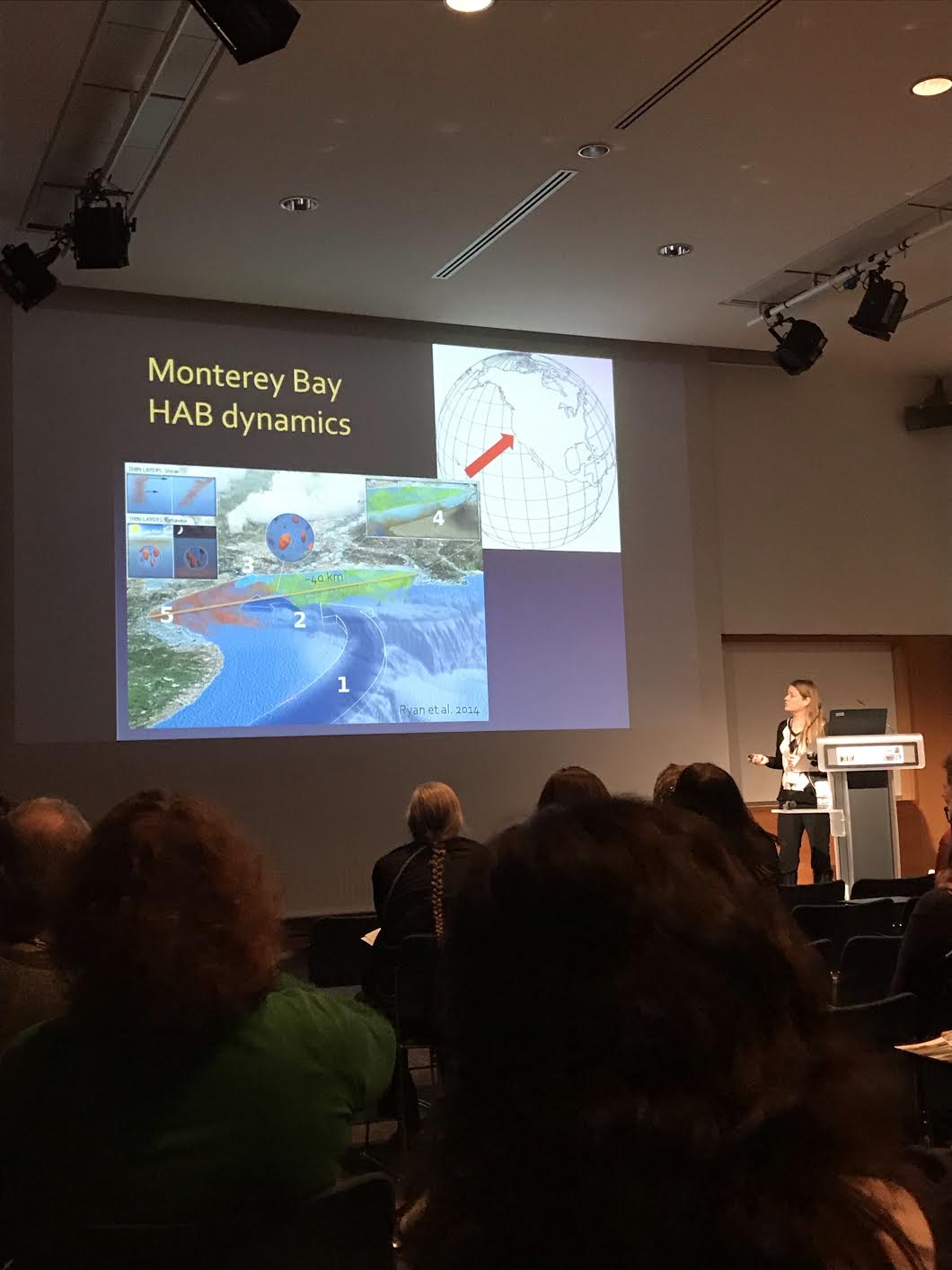Farm-derived nutrient runoff is a global problem that threatens marine ecosystems. Here in Monterey Bay, researchers from the SJSU/MLML Central Coast Wetlands Group and Environmental Biotechnology Lab are working hard to develop innovative new solutions to this longstanding issue.
This important work was recently highlighted in the San José State University Research Foundation 2021 Annual Report. MLML scientist Dr. Holly Bowers was even featured on the report cover! The photo shows Dr. Bowers using a handheld qPCR instrument to detect DNA from target harmful algal bloom (HAB) species. Read the full story on page 16 of the report.





